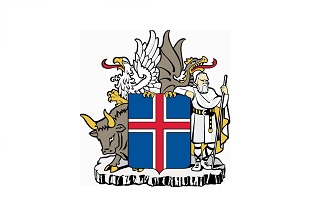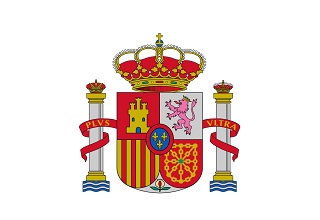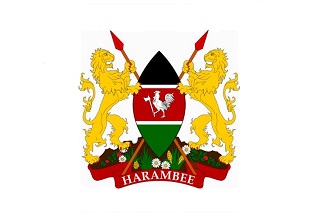Regarding the Inspection and Quarantine Requirements for Fresh Apple from Netherlands to China
According to relevant Chinese laws and regulations and the "Protocol on Phytosanitary Requirements for the Export of Fresh Apples from the Netherlands to China between the Customs of China and the Ministry of Agriculture, Fisheries, Food Security and Nature of the Netherlands", the import of fresh apples from the Netherlands that meet the following requirements is allowed from now on.
I. Inspection and quarantine basis
(1) "Law of the People's Republic of China on Biosafety";
(2) "Law of the People's Republic of China on Entry and Exit Animal and Plant Quarantine" and its implementing regulations;
(3) "Food Safety Law of the People's Republic of China" and its implementing regulations;
(4) "Measures for the Supervision and Administration of Inspection and Quarantine of Imported Fruits";
(5) "Protocol on Phytosanitary Requirements for the Export of Fresh Apples from the Netherlands to China between the Customs of China and the Ministry of Agriculture, Fisheries, Food Security and Nature of the Kingdom of the Netherlands".
II. Names of commodities allowed for import
Fresh apple, scientific name Malus domestica, English name Apple.
III. Permitted origin
Apple producing areas in the Netherlands.
IV. Approved orchards and packaging plants
Orchards and packaging plants for exporting apples to China should be reviewed and filed with the Netherlands National Plant Protection Office and approved for registration by China Customs. The registration information includes name, address and registration number, so that the export goods can be accurately traced when they do not meet the relevant regulations. Before the export season each year, the Netherlands National Plant Protection Office should provide China Customs with an updated list of registered orchards and packaging plants, which will be published on the website after review and approval by China Customs.
V. List of quarantine pests of concern to China Customs
1. Archips podana
2. Cydia pomonella
3. Diaspidiotus pyri
4. Dysaphis plantaginea
5. Epidiaspis leperii
6. Eriosoma lanigerum
7. Hoplocampa testudinea
8. Lepidosaphes ulmi
9. Rhopalosiphum insertum
10. Rhynchites aequatus
11. Taeniothrips inconsequens
12. Erwinia amylovora
13. Monilinia fructigena
14. Monilinia laxa
15. Neofabraea alba, Neofabraea malicorticis, Neofabraea perennans
16. Phytophthora cambivora
17. Phytophthora syringae
18. Venturia inaequalis
VI. Pre-export management
(I) Orchard management.
1. Orchards exporting apples to China should establish and implement good agricultural practices (GAP) to establish a complete traceability system. Maintain orchard sanitary conditions, remove rotten fruits during harvest, etc.; implement integrated pest management measures (IPM), including pest and disease monitoring, chemical or biological control, and agricultural operations and other control measures.
2. The Netherlands National Plant Protection Office should conduct orchard monitoring for quarantine pests of concern to China Customs. Orchard pest monitoring and control should be completed under the supervision and guidance of professional technicians. Orchards exporting to China must keep records of pest monitoring and control and provide them to the Chinese Customs upon request. Control records include the name, active ingredients, dosage and time of all chemical agents used during the growing season.
3. For Erwinia amylovora, the Netherlands National Plant Protection Office should establish pest-free production sites in accordance with the relevant international standards of the International Standard for Phytosanitary Measures No. 10 (ISPM 10). The Netherlands National Plant Protection Office or its authorized agency should conduct Erwinia amylovora monitoring in apple orchards exported to China at least three times a year, that is, after the germination of new buds, 30-40 days after flowering, and before harvest. If Erwinia amylovora is detected in the orchard before the export season, a buffer zone should be established within 1,000 meters outside the pest-free production site and monitored at least three times a year. The Netherlands National Plant Protection Office should provide relevant monitoring information to the Chinese Customs in a timely manner. Regardless of whether Erwinia amylovora is detected in the non-pested production area or the buffer zone, the Netherlands National Plant Protection Office shall suspend the export qualification of the non-pested production area to China and immediately notify the Chinese Customs. The non-pested production area can be restored only when the Netherlands National Plant Protection Office eliminates the epidemic and is approved by the Chinese Customs.
4. For Cydia pomonella, apples exported to China must come from non-pested production sites or orchards that implement systemic control measures. Orchards must carry out Cydia pomonella orchard monitoring under the supervision of the Netherlands National Plant Protection Office and the guidance of plant protection technicians. The monitoring starts from the peak flowering period until the end of apple harvest, and the traps are checked every two weeks. The trap setting density is 1 trap per 4 hectares. If the area is insufficient, there should be at least 1 trap. If 2 or more Cydia pomonella are found in the trap, effective prevention and control should be carried out immediately. For orchards that are not thoroughly controlled, the Netherlands National Plant Protection Office will suspend the orchard’s export qualification to China and immediately notify the Chinese Customs. Upon request, the Netherlands National Plant Protection Office shall provide the Chinese Customs with the investigation report or management record on the pest. Orchards must place Cydia pomonella mating interference devices, apply registered pesticides appropriately, and take 40 suspicious fruits from each plot for fruit dissection inspection during export inspection. Once Cydia pomonella is found, the export of the orchard will be suspended.
5. For Phytophthora syringae, the Netherlands National Plant Protection Office shall establish pest-free production sites in accordance with the relevant international standards of the International Standard for Phytosanitary Measures No. 10 (ISPM 10). Orchards exporting to China shall carry out monitoring throughout the apple growing season. Once Phytophthora syringae is detected, the Netherlands National Plant Protection Office will suspend the export qualification of the pest-free production site for this season and immediately notify the Chinese Customs. Upon request, the Netherlands National Plant Protection Office shall provide the Chinese Customs with annual monitoring and investigation reports.
If it is not possible to establish a pest-free production site in the orchard, appropriate equivalent alternative measures should be taken, including:
(1) Carry out targeted spraying for prevention (fungicides must be registered), especially after rainfall;
(2) Plant grass on the ground in the orchard and harvest fruits above 50 cm (adult knee height) from the ground surface;
(3) Provide the Chinese Customs with a list of pesticides used after harvesting upon request;
(4) Increase the sampling rate to 3% during official inspection and quarantine before export.
6. For Neofabraea alba, Neofabraea malicorticis, Neofabraea perennans and Venturia inaequalis, orchards exported to China should carry out orchard monitoring during the growing period. Once any pathogen is detected, the Netherlands National Plant Protection Office will suspend the orchard's export qualification for this season and immediately notify the Chinese Customs. Apples exported to China must be treated with fungicides or alternative measures that can effectively prevent and control postharvest rot immediately before or after harvest before they can be stored or packaged.
(II) Packaging plant management.
1. The processing, packaging, storage and shipment of apples exported to China must be carried out under the quarantine supervision of the Netherlands National Plant Protection Office. Only fruits from registered orchards can be processed in the packaging plant.
2. The production line needs to be cleaned before processing. During the processing and packaging process, apples must be washed, sorted, graded and inferior fruits must be removed to ensure that the fruits are free of insects, mites, spiders, contaminating pests, branches, leaves, roots and soil.
3. Packaged apples must be stored separately to avoid reinfection by pests.
(III) Packaging requirements.
1. Each packaging box should be marked in English with information such as the name of the fruit, place of origin (province, country), orchard name or its registration number, and packaging plant name or its registration number. Each packaging box and pallet of goods must be marked in English with "Exported to the People's Republic of China".
2. The packaging materials for apples exported to China should be clean, hygienic, unused, and meet China's plant quarantine and hygiene requirements.
3. If the packaging box has ventilation holes, an insect-proof net (maximum hole diameter 1.6 mm) or a packaging bag with micropores should be used to cover each packaging box ventilation hole or the entire pallet to prevent pests from entering. If wooden packaging is used, it must comply with the requirements of International Standard for Phytosanitary Measures No. 15 (ISPM 15).
(IV) Pre-export inspection and quarantine.
1. Within the first two years of trade, the Netherlands National Plant Protection Office shall sample and inspect apples exported to China at a rate of 2% per batch of goods, with a minimum sampling volume of 1,200 fruits, and at least 40 of them or suspicious fruits found during the inspection shall be dissected for inspection. If no plant quarantine problems occur within two years, the sampling rate may be reduced to 1%, but not less than 600 fruits.
2. If Erwinia amylovora is found, the Netherlands National Plant Protection Office shall suspend the export qualification of the relevant non-pest production point to China and immediately notify the Chinese Customs. When the Netherlands National Plant Protection Office eliminates the epidemic, the non-pest production point can be restored.
3. If other quarantine pests of concern to China Customs are found, the batch of goods shall not be exported to China. The Netherlands National Plant Protection Office shall find out the reasons and take corrective measures. At the same time, it shall keep the records of seizures and provide them to China Customs upon request.
(V) Requirements for plant quarantine certificates.
1. For apples that have passed the quarantine, the Netherlands National Plant Protection Office shall issue a plant quarantine certificate for them and indicate in the additional statement: "This consignment complies with requirements specified in the Protocol of Phytosanitary Requirements for Export of Fresh Apples from Netherlands to China, and is free from the quarantine pests of concern to China."
2. Before the start of trade, the Netherlands National Plant Protection Office shall provide a sample of the plant quarantine certificate to China Customs for confirmation and filing.
VII. Entry quarantine and unqualified treatment
When apples exported to China arrive at the Chinese entry port, China Customs shall implement inspection and quarantine in accordance with the following requirements.
(I) Verification of relevant certificates and labels.
1. Verify whether the imported fruit has obtained the "Entry Animal and Plant Quarantine Permit".
2. Check whether the plant quarantine certificate complies with the provisions of Article 6, Item (5) of this Announcement.
3. Check whether the markings on the packaging boxes and pallets comply with the provisions of Article 6, Item (3) of this Announcement.
(II) Entry inspection and quarantine.
1. Apples exported to China should enter the country from ports where Chinese customs allows the import of fruits.
2. According to relevant laws, administrative regulations, rules and other regulations, apples exported to China shall be subject to inspection and quarantine. If they pass the inspection and quarantine, they shall be allowed to enter the country.
(III) Disqualified treatment.
1. If the apples are found to come from unregistered orchards or packaging plants, the batch of goods will not be allowed to enter the country.
2. If Erwinia amylovora is found, the batch of goods will be returned or destroyed. Chinese Customs will suspend the trade of Dutch apples exported to China this season.
3. If high-risk quarantine pests such as Cydia pomonella, Phytophthora syringae, Neofabraea alba, Neofabraea malicorticis, Neofabraea perennans and/or Venturia inaequalis are found, the batch of goods will be returned or destroyed. China Customs will immediately notify the Netherlands National Plant Protection Office and, depending on the situation, suspend the export of apples from the relevant orchards or packaging plants to China in this export season. The Netherlands National Plant Protection Office should conduct an investigation, find out the reasons and take corresponding improvement measures. China Customs will decide whether to cancel the suspension measures based on the rectification results of the Netherlands National Plant Protection Office.
4. If other quarantine pests of concern to China Customs or new quarantine pests in the Netherlands are found, the batch of goods will be quarantined, returned or destroyed. China Customs will immediately notify the Netherlands National Plant Protection Office, which will conduct an investigation, find out the reasons and take improvement measures.
5. If it is found that the goods do not meet the Chinese national food safety standards, the batch of goods will be returned or destroyed in accordance with the law.
GACC




